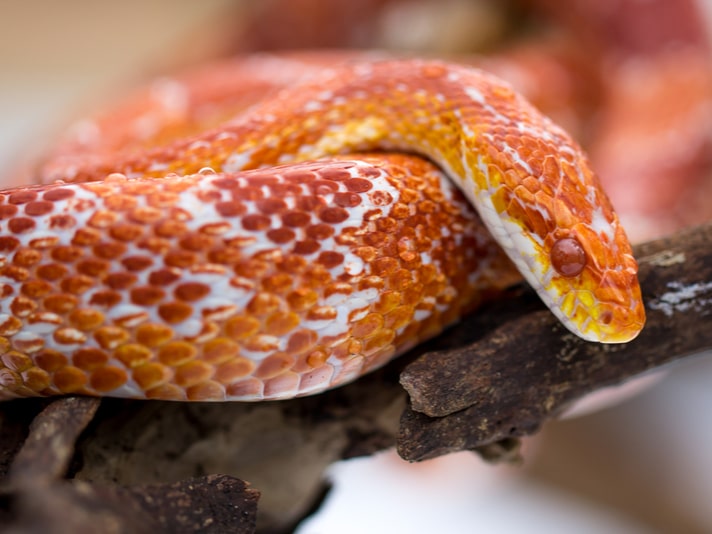This ban includes fish, birds, reptiles, amphibians, small mammals, and any animal that is not specifically exempted from the definition of “exotic animal.”
ALERT: Burlington, VT
Burlington is considering a ban on all “exotic animals.” This ban includes fish, birds, reptiles, amphibians, small mammals, and any animal that is not specifically exempted from the definition of “exotic animal” (see below). Hidden in a 71-page presentation from the Dog Task Force is this proposed ban, along with the false claim that the “needs of exotic animals cannot be met in captivity” and other animal rights propaganda. Local residents need to show up and speak up! Sample letter below, too.
The definition of “exotic animal” includes aquarium fish, leopard geckos, parakeets, corn snakes, finches, hedgehogs, all other non-domesticated species, and even some domesticated animals, including parakeets, cockatiels, koi, goldfish, and more. Legislative intent does not matter when the language of the law clearly bans almost all species of pets. To make this even worse, this is hidden on the meeting agenda and labeled as “Dog Task Force Report Review.” There is a grandfathering clause, but once your current guppy, gecko, or finch dies, you cannot get another one. It also means your current “exotic animal” is illegal if you do not register it.
Please note that the City Council may not be aware of this proposal or that it is being proposed secretly by not being properly announced on the agenda. Be civil and professional! Emails and sample letter are below.
Ordinance Committee Meeting: Tuesday, November 5, 2024, at 11:00 AM, 645 Pine Street (Public Works Department) in the Front Conference Room (Yes, on Election Day!)
Meeting webinar: https://zoom.us/j/96348625157?pwd=vdNBLotb8b04dShMU9r1yeKsCbtt2q.1
The current exotic animal chapter will be replaced with the following:
- Purpose and findings: The city recognizes that the keeping of exotic animals raises animal welfare concerns and public health and safety concerns not commonly associated with domesticated animals. This section is intended to prevent the mistreatment of exotic animals, reduce the risk of harm to the public from contact with exotic animals as well as accidents and other incidents involving such animals, and reduce the public health risk associated with diseases and pathogens carried by such animals.
- Definitions: “Exotic animal” means all animals except domestic dogs, domestic cats, domestic mice, domestic rats, domestic rabbits, gerbils, hamsters, guinea pigs, the European ferret, and livestock as defined by Title 6, section 791 of the Vermont Statutes.
- Prohibition: The offer for sale, sale, purchase, possession, or public display of any exotic animal within the corporate limits of the city is prohibited.
- Exemptions: Any exotic animal possessed on the date of the enactment of this ordinance is exempted from the prohibition on possession set forth in subsection (c) upon registration of the animal with the Board of Health. The exemption applies only to the individual animal registered and does not apply to any animal of the same species subsequently acquired. The prohibition set forth in subsection (c) shall not apply to registered 501(c)(3) organizations whose primary purpose is education, animal rescue, or animal rehabilitation.
See pages 22-26 of the document at https://usark.org/wp-content/uploads/2024/11/24-Burlington-VA-exotic-animals.pdf.
NOTE: Under Vermont law (6 V.S.A. § 791): “Livestock” means cattle, calves, sheep, swine, horses, mules, goats, fallow deer, American bison, poultry, and any other animal that can or may be used in and for the preparation of meat, fiber, or poultry products. (Apparently, you can own a bison but not a guppy.)
Phone numbers, wards, and Council members: https://www.burlingtonvt.gov/413/City-Council
Sample Letter: (Be professional and civil. Please edit and personalize)
(Google “copy/paste” and this will only take a minute!)
email to: mayor@burlingtonvt.gov, gbergman@burlingtonvt.gov, jshannon@burlingtonvt.gov, bbrownmcknight@burlingtonvt.gov, cneubieser@burlingtonvt.gov, jkane@burlingtonvt.gov, scarpenter@burlingtonvt.gov, btraverse@burlingtonvt.gov, elitwin@burlingtonvt.gov, mbroderick@burlingtonvt.gov, megrant@burlingtonvt.gov, tdoherty@burlingtonvt.gov, mbarlow@burlingtonvt.gov
Subject line: NO to animal ban
Burlington Mayor Mulvaney-Stanak and City Council,
As a Burlington resident and responsible animal owner, I find the proposed animal ordinance beyond troubling. While being pitched as an “exotic animal” ban, this is so poorly written that it even bans domesticated species, including parakeets, cockatiels, koi fish, and more. It bans common pets such as leopard geckos, love birds, Greek tortoises, finches, corn snakes, tree frogs, aquarium fish, and hundreds of others. I am factually referencing the language of this proposed law. Intent does not matter.
While I understand and appreciate the intent, the draft ordinance is rife with unintended consequences. The accompanying document misinforms with false claims and propaganda sharing. While I hope this is not the true intent, as drafted, the ordinance will ban almost all pet animals other than dogs, cats, livestock, and a few small mammals.
If you are unaware, 29% of Americans own fish, birds, reptiles, small mammals, and amphibians. That means over 13,000 residents could be affected by this ban. While you do allow people who currently own these animals to keep them, most people would never consider that their pets are illegal. Additionally, this will ban many pets in the future. If they have allergies to dogs, cats, and the few mammals listed, they could never own pets. With many children now developing allergies to these most common furry pets, future generations will never know pets and will not appreciate any animals. including wild ones.
Surely, this overreach is not what the Council seeks to do. Please reconsider this proposal and do more research. Thank you for your time, and have a good day.
YOUR NAME



